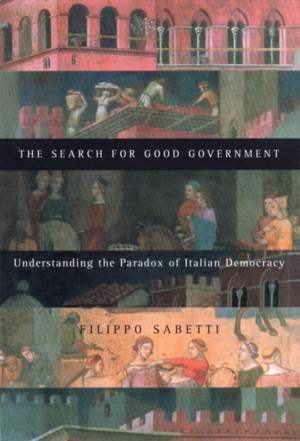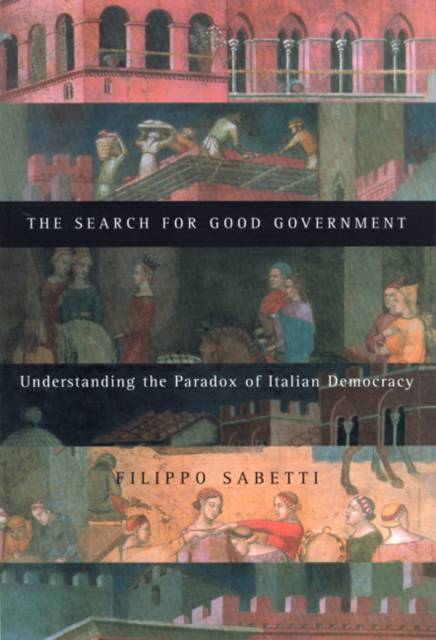
- Afhalen na 1 uur in een winkel met voorraad
- Gratis thuislevering in België vanaf € 30
- Ruim aanbod met 7 miljoen producten
- Afhalen na 1 uur in een winkel met voorraad
- Gratis thuislevering in België vanaf € 30
- Ruim aanbod met 7 miljoen producten
Zoeken
The Search for Good Government
Understanding the Paradox of Italian Democracy
Filippo Sabetti
Paperback | Engels
€ 51,95
+ 103 punten
Omschrijving
Sabetti argues that poor government performance in contemporary Italy has been an unintended consequence of attempts to craft institutions for good - or democratic - government. He shows that, contrary to the conventional wisdom, a chief problem in contemporary Italy is not the absence of the rule of law but, rather, the presence of rule by law or too many laws. A principal conclusion of his study is that postwar Italian politics can best be understood as a laboratory for revealing how and why a search for good government can generate antithetical and counter intentional results. The Italian experience has important implications for all those who aspire to be self-governing - as opposed to state-governed - for it shows what people can do to enhance human cooperation in collective-action dilemmas and suggests the probable results if "democracy" continues to be identified with parliamentary government and representative assemblies rather than with the universality of the village or the local community. The Search for Good Government changes our understanding of postwar Italian politics and provides new ways to evaluate the impact of the political changes that have occurred since 1992, arguing for a perceptual shift in the way we think about politics and the educative role of public institutions.
Specificaties
Betrokkenen
- Auteur(s):
- Uitgeverij:
Inhoud
- Aantal bladzijden:
- 328
- Taal:
- Engels
Eigenschappen
- Productcode (EAN):
- 9780773524859
- Verschijningsdatum:
- 6/08/2002
- Uitvoering:
- Paperback
- Formaat:
- Trade paperback (VS)
- Afmetingen:
- 160 mm x 229 mm
- Gewicht:
- 489 g

Alleen bij Standaard Boekhandel
+ 103 punten op je klantenkaart van Standaard Boekhandel
Beoordelingen
We publiceren alleen reviews die voldoen aan de voorwaarden voor reviews. Bekijk onze voorwaarden voor reviews.











